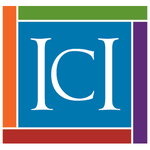ICI Staffers Author Handbook Chapter on Postsecondary Education Opportunities for Students with Disabilities
A group of Institute for Community Inclusion and Think College researchers recently co-authored a chapter about postsecondary education for the second edition of the Handbook of Research-Based Practices for Educating Students with Intellectual Disability, detailing how higher education can improve the lives, financial security, and postschool outcomes of people with intellectual disability in the United States.
In the chapter, Meg Grigal, Maria Paiewonsky, Caitlyn Bukaty, and Irina Cain described recent developments in higher education options for people with intellectual disability and detailed new findings from grantees in the federally funded Transition and Postsecondary Education Programs for Students with Intellectual Disability (TPSID) model demonstration program. The chapter also explains the historical background of postsecondary education for students with intellectual disability in the U.S., including the impact of the Higher Education Opportunity Act of 2008 (HEOA), as well as legislative and policy changes at the state and regional level.
The HEOA reauthorized the Higher Education Act of 1965, and unlike previous reauthorizations, the HEOA included specific provisions regarding students with intellectual disability and outlined components that should be present in postsecondary education programs enrolling them. According to the authors, prevailing concepts in the HEOA dictate that postsecondary education programs should offer students access to academic learning and program completion should lead to employment.
"The lens through which we view the education of young people with intellectual disability needs to begin with the expectation that they will achieve the best possible outcome, resulting from goals they establish themselves," the Think College authors wrote in the chapter. "For many students, these best outcomes can and should include accessing postsecondary education experiences leading to employment."
The researchers noted that based on a national directory of postsecondary education (IPSE) programs maintained by Think College, there are now over 350 programs at institutes of higher education — including two-year, four-year, and technical colleges — in the United States enrolling students with intellectual disability.
However, more colleges and universities need to enroll students with intellectual disability, the researchers said. Additionally, there’s a need for more expertise around to how to plan, implement, and evaluate postsecondary education experiences both for youth and adults with intellectual disability.
"The ultimate outcome of a successful K–12 education for a student with intellectual disability depends greatly on the expectations of the professionals and families who interact with that student," the Think College researchers wrote. "They create the vision for the student’s future, and then systematically support the student to build the skills and experiences that lead to that future."
The full Handbook of Research-Based Practices for Educating Students with Intellectual Disability is available online.
